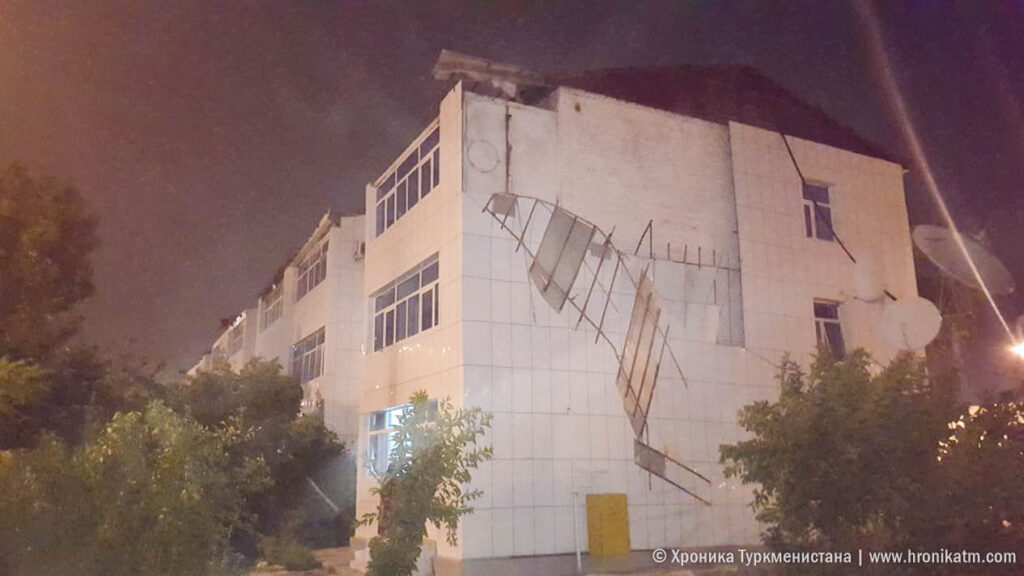Turkmen Dissidents Mark Anniversary of Deadly Storm With Government Protest
On April 27 activists from the Warsaw Post-Soviet Dissident Alliance will hold a protest in Warsaw, Poland, against the Turkmen government. The event is being organized in memory of the dozens of victims of the 2020 windstorm in the city of Turkmenabat. The protest will mark the fourth anniversary of the April 27 storm that brought hurricane-force winds to Turkmenabat. The storm claimed dozens of lives, but authorities in Ashgabat have never mentioned it -- nor have they offered any support to the victims' families. Rather, criminal cases were opened against the volunteers who tried to help people in the city on their own, the Warsaw Alliance have claimed in a statement. The Alliance is demanding that Turkmen authorities acknowledge the storm as a historical fact, disclose the number of dead and injured, pay compensation to the injured citizens and their families, and declare April 27 as a day of mourning. On 27 April 2020 there was a severe windstorm in Turkmenistan. The gales damaged a number of settlements in the Turkmenabat region, leaving hundreds of people homeless. Electricity, gas and drinking water were cut off for several days in places like Lebap, Turkmanabat (partially), Kerki and Farob (completely). Turkmen state television made no mention of the storm. The windstorm also crossed into Uzbekistan, where one death and 41 injuries of various degrees were reported. In contrast to the response of the Turkmen government, Uzbekistan's president Shavkat Mirziyoyev immediately flew to the city of Bukhara, where there was the most damage, to meet with residents.


